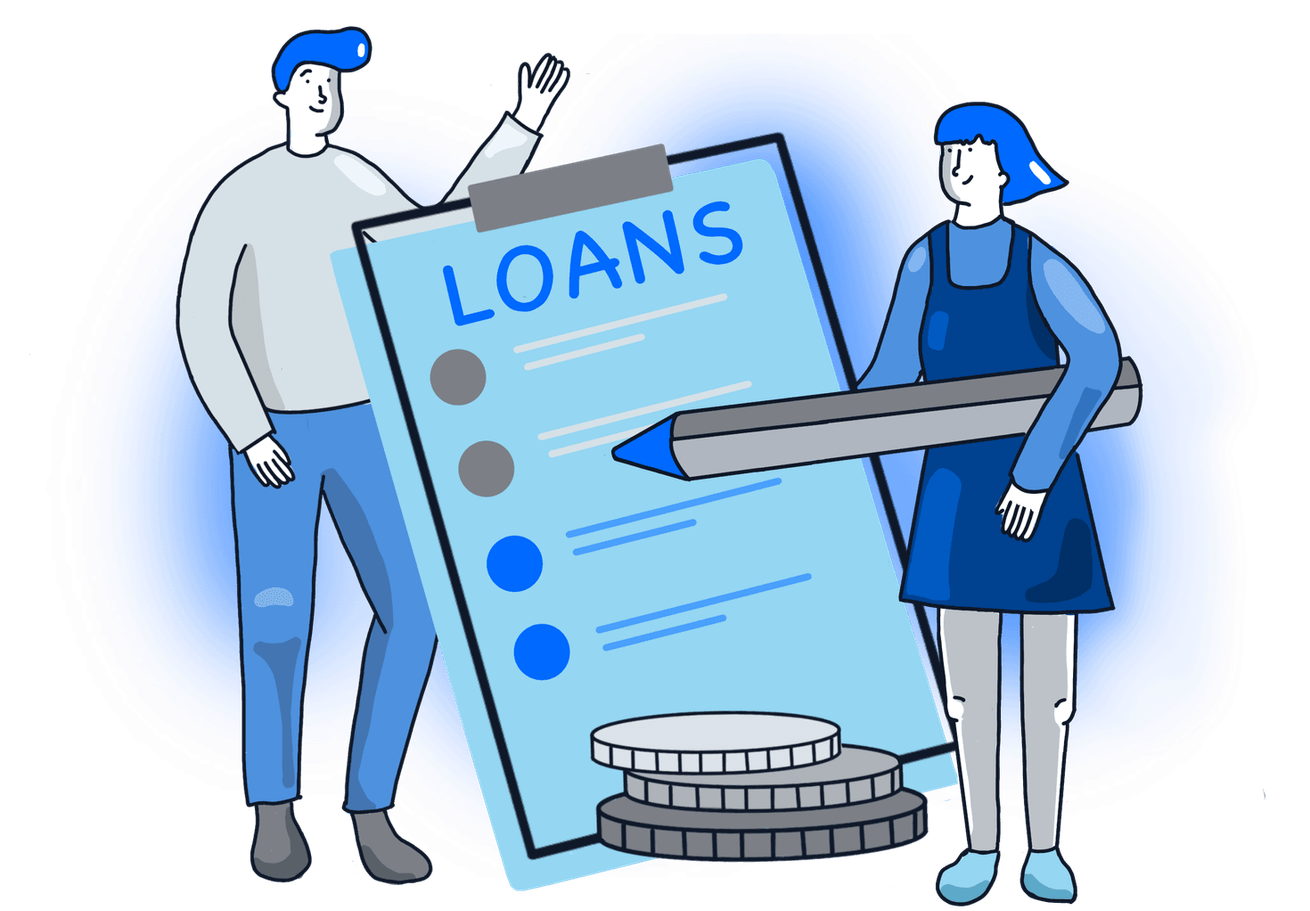Table des matières
Online Loans in France
Loans are in their simplest form an agreement between a lender and a borrower about the loan terms. The lender has the funds available and borrows them under specific criteria, often through an interest rate of some sort and some additional fees. This is considered the payment for borrowing the money and is paid back monthly, quarterly, biannually, or annually by the one who borrowed the money. As the agreement is made, certain aspects like amount, runtime (how long the period for returning the money is), and interest rate must be set. This is often done by banks to consumers, where banks have the funds available to them and lend them to their customers under a specific contract.

An example of a loan like this could be an amount of 500 €, over a runtime of 2 years (24 months), with an interest rate of 30%. With fees included, the final repayment for this loan is around 670.95 €. However, this amount is split over 24 terms (months), with a monthly payment of 27.96 € (fees included).
Usually, you would need to consult a local bank to sign up for a loan, but as online banking has become more and more popular, there are several lenders offering convenient online loans. While most traditional banks require a thorough investigation of your financial standpoint regarding monthly income, budgets, last year’s spending and much more, online banks only require minimum information, which makes them more accessible. Some online lenders might also offer lower interest rates since they are not burdened by paying rent for a physical subsidiary in the area.
Be over 18 years old. Some banks might have a minimum age requirement of 21 or even 25. This requirement often comes with bigger loans, so there are still plenty of loans available to you even if you are only 18.
Have your place of residence in France. You must have a valid form of ID, like CNI.
Have a stable income source. Banks offer the loans on the basis of getting back the money after the runtime has passed. If you have no income source, you cannot pay back your loan with the added interest, which in turn means you will not be able to take a loan in the first place. Some banks will require proof of income in the form of, for example, payslips or even employment contracts.
Here is an overview of the loans offered by online lenders in France, which you can also find right here on Moneezy:
Classic loans
Personal Loans (Prêts Personnels), Quick Loans (Crédits Rapides), Mini Loan (Mini-crédit),and Consumer Loans (Crédit Consommation) are the four different loans that follow the classic loan structure in France. You apply for a loan of a certain amount, as well as decide on runtime for paying it back with the added interest and fees. The different terms are mainly used to distinguish between small and big loans.
These loans can be used for a lot of different things. The smaller loans can be used for an unexpected expense that has come through, an emergency that must be taken care of, or invested in an item you've wanted for years. The bigger consumer loans are more suited towards initiating start-ups, loans for property or vehicles, as well as energy optimization or renovations in your home. The possibilities are endless, which is why the consumer loan is the most common loan.
Special loans
Consolidation Loans (Rachat de Crédit) is a term for combining several smaller loans into one big loan, to avoid paying huge interest for several loans at a time.
These are especially useful when consumers have taken several small loans and are now burdened with several payment dates and different interest rates.
Lastly, we have Revolving Credit or Credit Line (Crédit Renouvelable), which allows you to exceed the amount of money on your account by a set amount each month, without paying the normal fees. This is especially useful when conducting a big project, for example, a house renovation, where unexpected expenses can come out of nowhere.
The loan is only active if your account experiences an overdraft and the loan will cover the rest of your expenses.
Once next month’s paycheck comes in, the loan is automatically paid off with a small interest rate.
Pros and cons of loans in France
Pros
Loans that suit your situation.
Allows you to realize your projects.
Transparency throughout the entire process.
No loan justification.
Convenient and flexible.
Cons
Lifestyle inflation, where you spend more money because you have more money.
Debt, if you are not careful with your budget.
Reckless spending.
Extra fees if you do not comply with payment dates.
A loan is a commitment and must be repaid. Ensure you have the ability to repay before making a commitment.

Our take on online loans
If you are not realistic and thorough in your planning of budgets in connection with your loans, you can end up having trouble paying them back over time. Furthermore, if you apply for a loan to spend on devaluating assets such as technology, fashion, and trends, you are not looking at investments, but rather at reckless spending, something to avoid using loans for. Being mindful and intentional about your loans is the most important aspect. But if you keep these risks in mind when applying for a loan, they can be a great source to realize projects.
Our Top 3 Takeaways
Place close attention to the APR. In France, this is measured by the TAEG.
Apply for more than one loan, and stick with the answer you find the most convenient.
Be mindful when choosing the amount. If it does not fit in well into your budget, you might have trouble keeping up with payments.
Now that you have read more on the subject...Want to take another look at the loans we offer? Press the "Return" button to go back to our loan comparison tool.

Emil utilise son expertise pour faire une différence dans le secteur financier. Diplômé de l'Université du Danemark du Sud (SDU), il est directeur général chez Intelligent Banker depuis 2013, aidant plus de 500 000 utilisateurs du monde entier dans leurs besoins financiers.


